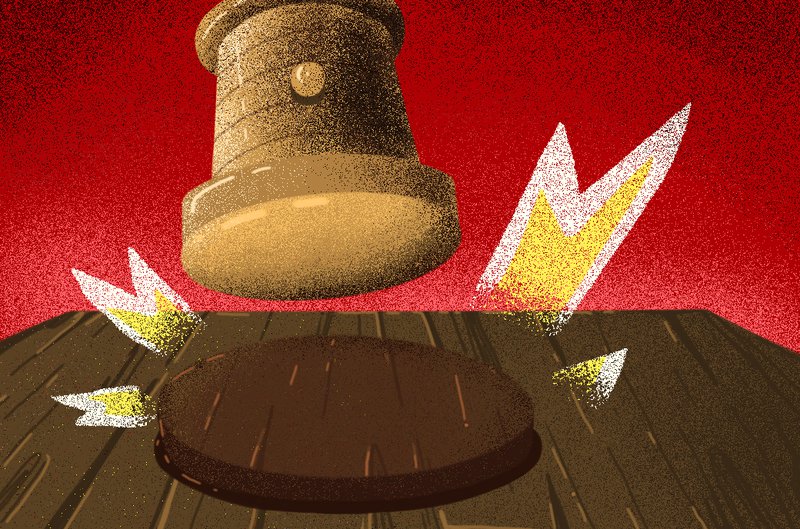2020-12-8 11:00 |
There are some exciting things going on in the crypto start-up space. With cryptocurrencies like Bitcoin gaining traction around the world, and with blockchains like Ethereum gaining greater usage, start-up founders are seeing new opportunities to innovate.
These start-ups are creating new currencies, digitizing and tokenizing assets like real estate and contracts, tackling the remittance problem, establishing new coin exchanges, and offering a multitude of new DeFi products. Many of these companies are raising early capital by issuing Initial Coin Offerings, or ICOs, where investors can get in on the ground floor in exchange for currency, coins, or tokens.
So how could these exciting new opportunities get to the point where a number of investors not only felt deceived by the start-up, but that the start-up founders should face legal action? It may seem like a big jump to get to that sentiment, but unfortunately, that’s the sentiment we uncovered among ICO investors.
Investor Funding ICO Projects Weren’t All That PositiveIn our recently published report entitled ICO US-Based Retail Investor Sentiment & Outlook 2020, we surveyed 600 U.S. retail investors to find out their experiences with investing in a crypto start-up.
Investors got behind an ICO for a number of reasons. The majority invested because they wanted to make money, but others got in because they believed in the crypto project, wanted to learn more about the industry, or because they like being an early adopter. But unfortunately, not all experiences were positive.
Of those who invested, 29% said they’d do it again, with 56% saying they’d do it again but with much more research first. 11% said they would never do it again, and actually regretted investing in the start-up in the first place. That’s the first red flag.
When asked “Do you feel that the ICO project intentionally deceived you or withheld information,” 33% — a full one-third of investors — said yes, they felt deceived or they felt that information was being kept from them. An additional 17% didn’t even know if they were being deceived or not.
Of the 33% who said they felt deceived by the crypto start-up, over half (56%) believed that the founders should be held criminally liable. And while the survey didn’t explicitly ask respondents what happened, all signs point to fraudulent activities, most likely theft on the part of the start-up. And because of a lack of fiscal regulation in the crypto space, once that money’s gone, it’s gone.
The Shaky History of ICOsThis isn’t how the industry should be. Investors should feel safe and excited to back new crypto projects, and many of these new start-ups have a lot of value and innovation to bring to the world. The industry also needs to rely on founder/investor partnerships if it wants to grow, furthermore widespread adoption, and become an institutionalized asset.
Unfortunately — and dangerously — a number of exit scam ICOs have popped up amongst the valid start-ups, tricking investors into handing over money for empty promises, and disappearing overnight. In 2017, the year ICOs burst onto the scene, over 80% of them ended up being exit scams, and in 2019, investors lost over $3 billion due to theft, with another $874 million lost due to misappropriated funds.
It goes without saying that exit scams, deception, fraud, and theft are a bad look for the industry. But what is worth asking is how you solve a problem like this?
An Improved Investment Landscape Needs Two ThingsThere are two approaches to fixing the problem of investor confusion and the presence of fraudulent ICO projects.
The first is transparency. The crypto industry is still new, with the act of investing in crypto projects still so nascent that there aren’t really any best practices for investor relations, specifically around disclosures. We saw this in our report, where over half our respondents said they would invest again but with more research. Right now, unlike traditional start-ups, crypto start-ups aren’t required to disclose information about their project — founders, history, business model, earnings forecasts, and more — which leaves investors uninformed and unaware.
A simple solution would be a central hub, much like the SEC’s EDGAR database, where founders can list their projects so that investors can do their due diligence. This solves the information asymmetry problem that could lead to investing in bad companies.
When disclosures become standard practice for the industry, any start-up not willing to disclose would signal to investors that they’re not trustworthy. In fact, when asked “What’s holding crypto back?” the respondents in our report said that, above all, a lack of awareness was holding the industry back.
The second approach to weeding out scam companies and building investors’ confidence is through accountability. When asked what needed to change to get more investors involved in crypto projects, survey respondents said that first, there needs to be “more accountability for ICO projects to deliver what they promise.”
Increasing transparency and information flow will help. But the industry needs to start holding bad businesses accountable and distancing itself from exit scams. This could begin with flagging those start-ups who refuse to disclose information to investors.
And if investors thought that founders should be held criminally liable for their actions — well, maybe they should be, in order to send a clear message that the industry won’t tolerate scam projects, and will put investors first.
What’s clear, though, is that the crypto industry can’t be indifferent on this issue, or pass it off as acceptable risk. By taking a firm posture on increasing transparency around new crypto projects in order to give investors better knowledge around what they’re investing in, and by keeping those in the industry accountable, there will be a shift towards increased trust, relationship, and growth. In fact, there has to be for the industry to survive.
The post Should ICO project founders be held criminally liable for withholding information? appeared first on CryptoSlate.
origin »Bitcoin price in Telegram @btc_price_every_hour
ICO OpenLedger (ICOO) на Currencies.ru
|
|




















